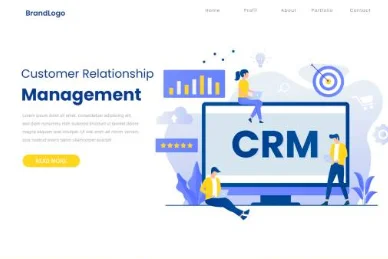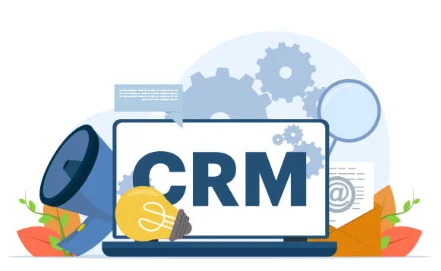Customer Data Protection in CRM: Best Security Practices for 2024
In today’s digital landscape, Customer Relationship Management (CRM) systems play a vital role in managing relationships with customers. However, as these systems handle increasingly sensitive customer information, the call for robust customer data protection practices becomes urgent. The importance of safeguarding customer data extends beyond regulatory compliance; it is also a matter of building and maintaining customer trust. This article explores the best practices for protecting customer data in CRM systems for the year 2024 and beyond.
Understanding Customer Data Protection
What is Customer Data Protection?
Customer data protection refers to the strategies and practices employed to safeguard personal and sensitive information from unauthorized access, data breaches, and misuse. In the context of CRM systems, which accumulate data on customer interactions, purchasing behavior, and preferences, establishing effective data protection measures is paramount.
Why is Customer Data Protection Crucial?
Impact on Trust and Reputation
A single data breach can lead to significant reputational damage for a business. Statistics show that a substantial number of customers will avoid engaging with a company that has had a data breach. The erosion of trust can lead to a decline in customer loyalty and subsequently hurt long-term profitability.
Regulatory Compliance
Various regulations, such as the General Data Protection Regulation (GDPR) and the California Consumer Privacy Act (CCPA), impose strict requirements on how businesses handle customer data. Non-compliance can result in hefty fines and legal repercussions, making compliance a critical component of any data protection strategy.
Business Continuity and Security
An effective data protection framework not only protects customer data but also mitigates the risk of financial loss associated with data breaches or cyber threats. Implementing comprehensive security measures ensures business continuity, even in the face of potential cyberattacks.
Best Security Practices for CRM Data Protection
1. Role-Based Access Control (RBAC)
Limiting Data Accessibility
Implementing Role-Based Access Control (RBAC) ensures that only authorized personnel can access sensitive customer data. Each role within the organization should have permissions restricted to the data necessary for their functions. This practice limits exposure to sensitive information, significantly reducing the risk of internal data breaches.
2. Multi-Factor Authentication (MFA)
Enhancing Login Security
MFA adds an extra layer of security by requiring users to provide two or more verification factors to gain access to a system. This method is especially vital for CRM systems, which store a wealth of sensitive information. Using MFA greatly decreases the chances of unauthorized access.
3. Data Encryption
Securing Data in Transit and at Rest
Data encryption is fundamental in protecting customer data. It ensures that sensitive information remains unreadable to unauthorized users. Use strong encryption standards, such as AES-256, for data at rest and SSL/TLS protocols for data in transit. Encrypting data employs advanced algorithms to convert information into an unreadable format unless decrypted by an authorized user.
4. Regular Software Updates
Maintaining Up-to-Date Security Measures
Keeping CRM software current is essential to protecting against vulnerabilities. Regular updates provide security patches that fix known issues and enhance defenses against emerging cyber threats. Establishing a routine for software updates can significantly mitigate risks.
5. Data Minimization
Collecting Only Necessary Data
Focusing on data minimization involves only collecting the information needed for your business processes. Oversharing data makes your organization a more attractive target for cybercriminals. Limiting data collection reduces the risk of exposure during a breach, aligning with regulations that emphasize the importance of data minimization.
6. Staff Training and Awareness
Educating Employees on Security Practices
Human error is often the leading cause of data breaches. Regular training sessions on data protection, phishing attacks, and secure data handling can empower employees to recognize and combat potential threats. An informed workforce is crucial for ensuring robust data security.
7. Regular Security Audits
Identifying Vulnerabilities
Conducting regular security audits can help organizations identify weaknesses in their data protection practices. Audits should include penetration testing and vulnerability scans to assess the effectiveness of existing security measures and implement improvements as necessary.
8. Incident Response Planning
Preparing for Potential Breaches
Creating a comprehensive incident response plan is vital for minimizing damage in the event of a data breach. Organizations should make provisions for immediate response actions, communication strategies, and recovery steps. Having a clear plan ensures a timely and coordinated response to data incidents.
9. Vendor Risk Management
Evaluating Third-Party Services
Businesses often rely on third-party vendors for various services, including CRM solutions. It is essential to evaluate the security and data protection practices of these vendors. Establish clear expectations regarding data security protocols and conduct regular reviews to ensure compliance.
10. Compliance with Data Protection Regulations
Understanding Legal Obligations
Compliance with regulations like GDPR and CCPA is non-negotiable. Understanding your obligations, including user consent, data access rights, and data deletion practices, is critical. Regularly review current laws and adjust your data protection strategies accordingly.
Conclusion
Protecting customer data within CRM systems is an ongoing challenge that demands a proactive and multi-layered approach. From implementing robust access controls to regular staff training and staying compliant with regulations, every aspect of data protection plays a crucial role in building customer trust and ensuring business success. Businesses that prioritize customer data protection create a foundation for sustainable relationships with their clients, ultimately leading to improved service delivery, customer satisfaction, and brand reputation.
Written by Domingo Hernández

